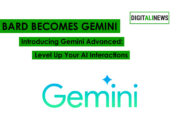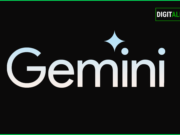The Rise of ChatGPT: A Game-Changer in AI Chatbots
Introduction to ChatGPT’s Impact
When OpenAI unleashed ChatGPT onto the scene last year, it marked a significant breakthrough in the realm of AI chatbots. Users worldwide quickly embraced the technology for diverse creative and practical applications, ranging from music composition to poetry and academic research.
Competitive Ripples: Google’s Response to ChatGPT
The widespread popularity of ChatGPT didn’t go unnoticed, and reportedly, it triggered a “code red” situation within Google’s offices. Although CEO Sundar Pichai later refuted the severity of this situation, it set the stage for Google’s eventual entry into the AI chatbot arena with the introduction of Bard.
Gemini Takes the Stage: Google’s Powerful Multimodal Model
Unveiling Gemini: Google’s Next-Gen AI Chatbot
Recent developments have brought forth Gemini, Google’s latest and most potent large language model. With its multimodal capabilities, Gemini promises to redefine the AI landscape, providing users with a more immersive and advanced experience. Google announced that Bard is now powered by Gemini, hinting at further advancements in the pipeline.
The Battle for AI Dominance: ChatGPT vs. Gemini
In an era where AI is poised to dominate, a competition for supremacy has already commenced. While ChatGPT pioneered human-like conversational AI, Google, often considered the “800 pound gorilla” in online search, is making a formidable entry with Gemini.
Benchmarking the Titans: Assessing Performance Metrics
ChatGPT’s Evolution: Upgrades and Enhancements
Since its debut in November 2022, ChatGPT has undergone several updates. The initial release, based on GPT-3.5, allowed users to engage in conversations with a responsive AI chatbot. Subsequent upgrades introduced a premium version powered by GPT-4, OpenAI’s most potent language model at the time. These enhancements not only expanded the capabilities of ChatGPT but also improved the quality of its responses.
Gemini’s Triumph: Benchmark Tests and Multimodal Prowess
Google’s Gemini, unveiled in May during the I/O event, stands as a formidable competitor. Boasting multimodal capabilities, Gemini has outperformed ChatGPT in benchmark tests across various domains, including General, Reasoning, Math, and Code. It has excelled in handling textual, visual, and auditory inputs, demonstrating its versatility in real-world scenarios.
Gemini Variants and Achievements
Google introduced three variants of Gemini – Ultra, Pro, and Nano. Gemini Ultra, with an impressive 90 percent score, achieved a significant milestone by surpassing human experts in massive multitask language understanding (MMLU). This comprehensive test covered subjects such as math, physics, history, law, medicine, and ethics.
Reality Check: Transparency and Fine Print
While Google showcased Gemini’s capabilities in a video, subsequent admissions by the company revealed that not everything depicted was 100 percent accurate. This revelation brought a degree of disappointment to some observers, emphasizing the importance of transparency in AI advancements.
Looking Ahead: The Future of AI Chatbots
Continuous Evolution: ChatGPT’s GPT Store and Upcoming Features
As the competition intensifies, both ChatGPT and Gemini continue to evolve. OpenAI’s plans for a GPT store suggest a platform for ongoing enhancements and user-specific customizations. The evolving landscape of AI chatbots promises exciting possibilities for users across various domains.
Competition Breeds Innovation: A Win-Win for Users
The ongoing rivalry between these advanced language models is expected to drive innovation, ultimately benefiting users in diverse fields. The future of AI chatbots holds promise, as each iteration strives to outperform the other, contributing to the continuous evolution of conversational AI. The race for supremacy is still unfolding, and only time will reveal which AI chatbot will emerge as the frontrunner in this dynamic landscape.


















